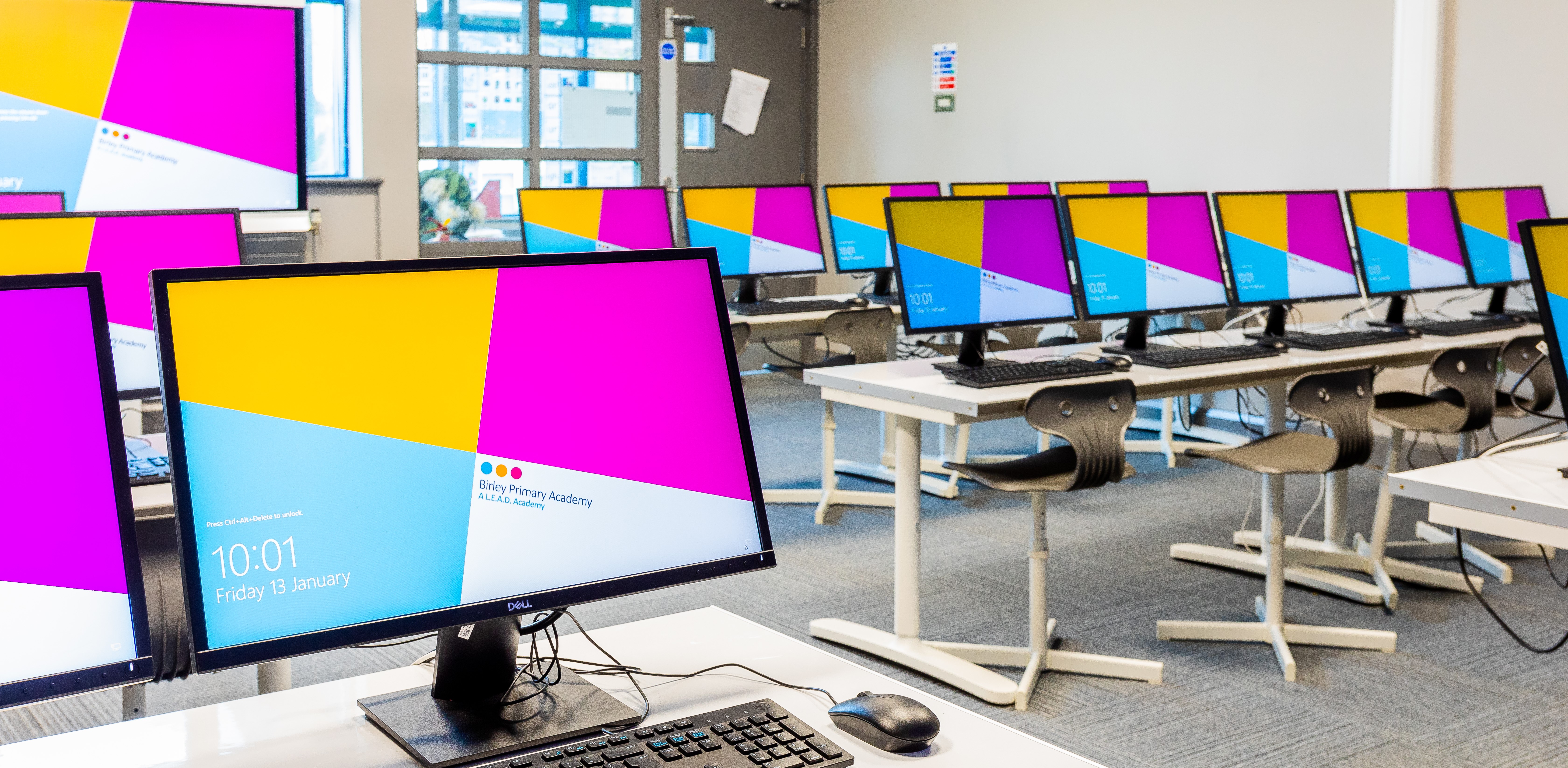
At Birley Primary Academy, we have a clear and simple vision: the children should be online-safe, online-inspired and online-confident! Computing is an integral part of our everyday life and will play an immeasurable part in our children’s futures. At Birley Primary Academy, we will provide all of our children with the skills, creativity and enthusiasm to live and thrive in a world increasingly dependent on computing. As computing technology underpins today’s modern lifestyle it is essential that all pupils gain the confidence and ability that they need in this subject, to prepare them for the challenge of a rapidly developing and changing technological world.
The aims for Computing in the National Curriculum are to promote high standards in computer literacy and a broad and varied understanding of all elements of information technology. The National Curriculum for Computing aims to ensure that all pupils:
To ensure high standards of teaching and learning in computing, we implement a curriculum that is progressive throughout the whole school. Our implementation of the computing curriculum is in line with the 2014 Primary National Curriculum requirements for KS1 and KS2 and the Foundation Stage Curriculum in England. This provides a broad framework and outlines the knowledge and skills taught in each key stage.
Computing teaching will deliver these requirements through our termly blocked units. Our Computing progression model is broken down into three strands that make up the computing curriculum. These are Computer Science, Information Technology and Digital Literacy. Computer Science underlines the knowledge and skills relating to programming, coding, algorithms and computational thinking. Information Technology underlines the knowledge and skills relating to communication, multimedia and data representation and handling. Digital Literacy underlines the knowledge and skills relating to online safety and technology uses all of which are covered whether combined or discretely.
As an academy, we use and follow the Purple Mash scheme of work from Year 1-6, ensuring consistency and progression throughout the school. The Purple Mash scheme of work enables clear coverage of the computing curriculum whilst also providing support and CPD for less confident teachers to deliver lessons. All taught units are practical and engaging and allow computing lessons to be hands on. Our selected units cover a broad range of computing components such as coding, spreadsheets, using the internet and email, databases, communication networks, animation and online safety.
We provide a variety of opportunities for computing learning inside and outside the classroom. Computing and safeguarding go hand in hand and we provide a huge focus on internet safety inside and outside of the classroom. Additional to all pupils studying an online safety unit through their computing lessons, every year we also take part in National Safer Internet Day in February. The Computing lead alongside class teachers will plan additional internet safety lessons and activities to take part in following a specific yearly theme. Internet Safety assemblies are also held as well as parent internet safety workshops.
At Birley Primary Academy, we have an extensive range of ICT resources that support the teaching of the Computing Curriculum. These include:
Links are always made with other curriculum areas wherever possible and computing skills are often used as a strong part of other subjects through research, word-processing, apps usage and the presentation of information.
Pupils at Birley Primary Academy will be digitally literate and able to join the rest of the world on its digital platform. Children will understand the relevance of the computing skills they are learning and how they can apply them to other areas of the National Curriculum. They will be equipped, not only with the skills and knowledge to use technology effectively and for their own benefit but more importantly – safely! The biggest impact we want for our children is that they understand the consequences of using the internet and that they are also aware of how to keep themselves safe online. As children become more confident in their abilities in computing, they will become more independent and key life skills such as problem solving, logical thinking and self-evaluation become second nature.
The impact of the teaching of computing will be evident within the lessons and activities children partake in at Birley Primary Academy. If children are keeping up with the curriculum, they are deemed to be making good or better progress. The children are able to save their work on the Purple Mash platform where they can share and evaluate their work. This also enables teachers to view, assess and evaluate children’s attainment and progress against outcomes outlined in the Purple Mash scheme of learning. In addition to evaluating children’s work, we measure the impact of our curriculum through the following methods:
The children are taught subject-specific knowledge and enabled to develop computing skills in their lessons. They will be provided with beneficial experiences which will give them the building blocks to enable them to access the curriculum as they go off to secondary school and allows them to pursue a wide range of interests in their personal life.
Here at Birley Primary Academy, we encourage our children to enjoy and value the curriculum we deliver. We will constantly ask the ‘why’ behind their learning and not just the ‘how’. We want learners to discuss, reflect and appreciate the impact computing has on their learning, development and well-being. Finding the right balance with technology is key to an effective education and a healthy life-style. We feel the way we implement computing helps children realise the need for the right balance and one they can continue to build on in their next stage of education and beyond.
In our computing curriculum, we promote British values in the following way:
Further to this, our Computing curriculum is also driven by SMSC development and this can be exemplified in the following ways;